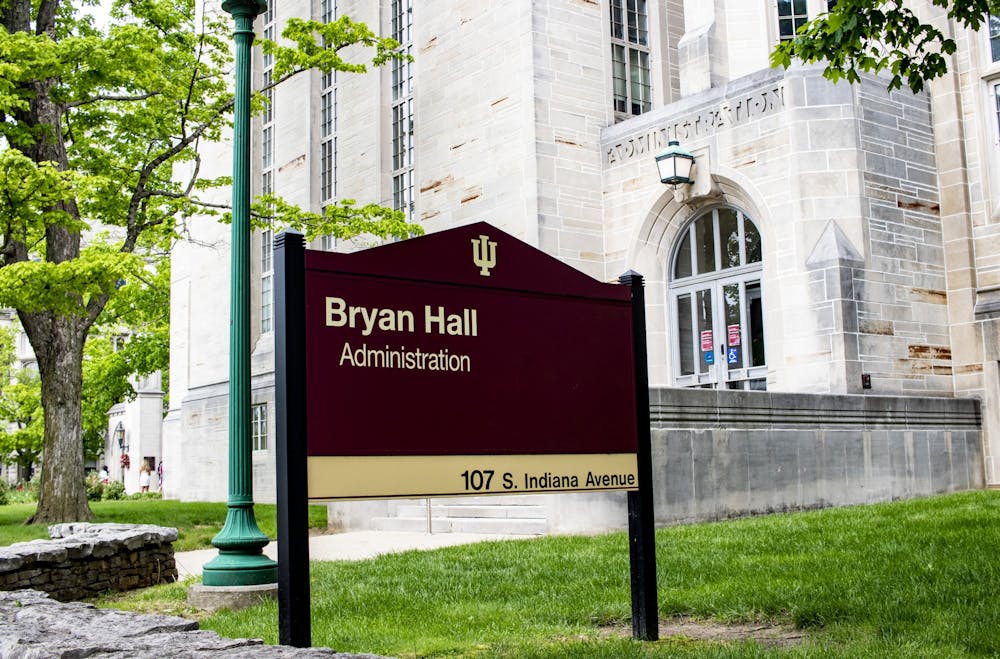The new U.S. Department of Education Title IX regulations detailing how universities should respond to sexual harassment took effect Aug. 14. The Department of Education announced the rulings May 6, and universities were given just more than three months to be in compliance.
The new laws include allowing witnesses to be cross-examined by both parties and requiring only sexual misconduct that happens on campus to be tried. Off-campus sexual misconduct falls under the IU Student Code of Conduct, but not the Title IX regulations released by the government. The regulations also characterize sexual harassment more narrowly than previous rules by now defining it as, “any unwelcome conduct that a reasonable person would find so severe, pervasive and objectively offensive.”
Title IX is the prohibition of discrimination on the basis of sex. Under the Obama administration, Title IX required schools to, “take prompt and effective steps to end the harassment, prevent its recurrence, and, as appropriate, remedy its effects.” Under the Discrimination, Harassment and Sexual Misconduct Policy, IU outlines other forms of discrimination that are prohibited including on the basis of ethnicity, gender expression and national origin among others. Although the new Title IX regulations do not strip any of IU’s existing policies, the new definition of harassment applies.
Senior Anna Colosi is the Membership Chair for Safe Sisters, an IU Panhellenic organization trained to listen, validate and support survivors of sexual assault. She said the new Title IX regulations can potentially cause more harm to survivors looking to report assault.
“It seems like the description of what they’re counting is a lot more intense almost, like it has to be extremely bad to actually do anything about it,” Colosi said. “It’s less stopping it before it happens and more reacting to what has happened.”
Emily Springston, university director of institutional equity and official Title IX coordinator, said although these changes were long-awaited, the time frame given to universities by the Trump administration to implement them was short.
“I think certainly they wanted to get these regulations out the door and established before they could be in a window in which they could be challenged by any change of administration,” Springston said.
Because of the recent protests against police brutality following the death of George Floyd and restrictions to physical gatherings due to the coronavirus pandemic, Springston said the Title IX changes have not received much attention. However, she said this encouraged the office to go further to protect students.
“Frankly, in light of some of what’s been going on, it’s one of the reasons why we looked to make sure that our discrimination and harassment procedures were easily found and identifiable,” Springston said. “We decided that if we’re going to revise this policy, we’re going to speak to all forms of discrimination prevention.”
Though language surrounding Title IX can be confusing, Springston said she wants students to know they do have options should they experience sexual misconduct and all forms of sexual violence are not OK at IU.
Because Title IX only regulates discrimination on the basis of sex, the IU Student Code of Conduct also addresses other forms of discrimination such as race, ethnicity or religion. However, some students believe IU still hasn’t done enough.
Recent graduate Ellie Johnson is the founder and president of Shatter the Silence, an independent community-based organization aimed at preventing sexual assault, advocating for survivors and holding local institutions accountable.
Shatter the Silence differs from resources regulated by the university in that it allows survivors a third-party option to report sexual assault while still holding the university accountable. Johnson said creating this reporting system was her biggest accomplishment since founding the organization.
Johnson said regardless of federal policies, universities should be obligated first to their students, even though doing so is not directly to their benefit.
“They are required to follow these federal policies but, in my opinion, IU has a greater responsibility to students to stand up to doing what’s right,” she said. “So no matter how low the federal government goes, IU needs to go high.”
Johnson said if students feel the university is not doing enough for sexual assault survivors, Shatter the Silence and other independent organizations are good resources.
“Federal, state, local and institutional policies are not the end all be all,” she said. “In theory, our rights are protected, but in the real world that’s not always the case. And regardless of what the policies or institutions say, you still have a right to your body and an education free from violence.”
CORRECTION: A previous version of this article incorrectly defined terms such as sexual harassment and sexual assault, and incorrectly stated IU’s definition of discrimination on the basis of sex. The article has also been updated for clarification. The IDS regrets these errors.




